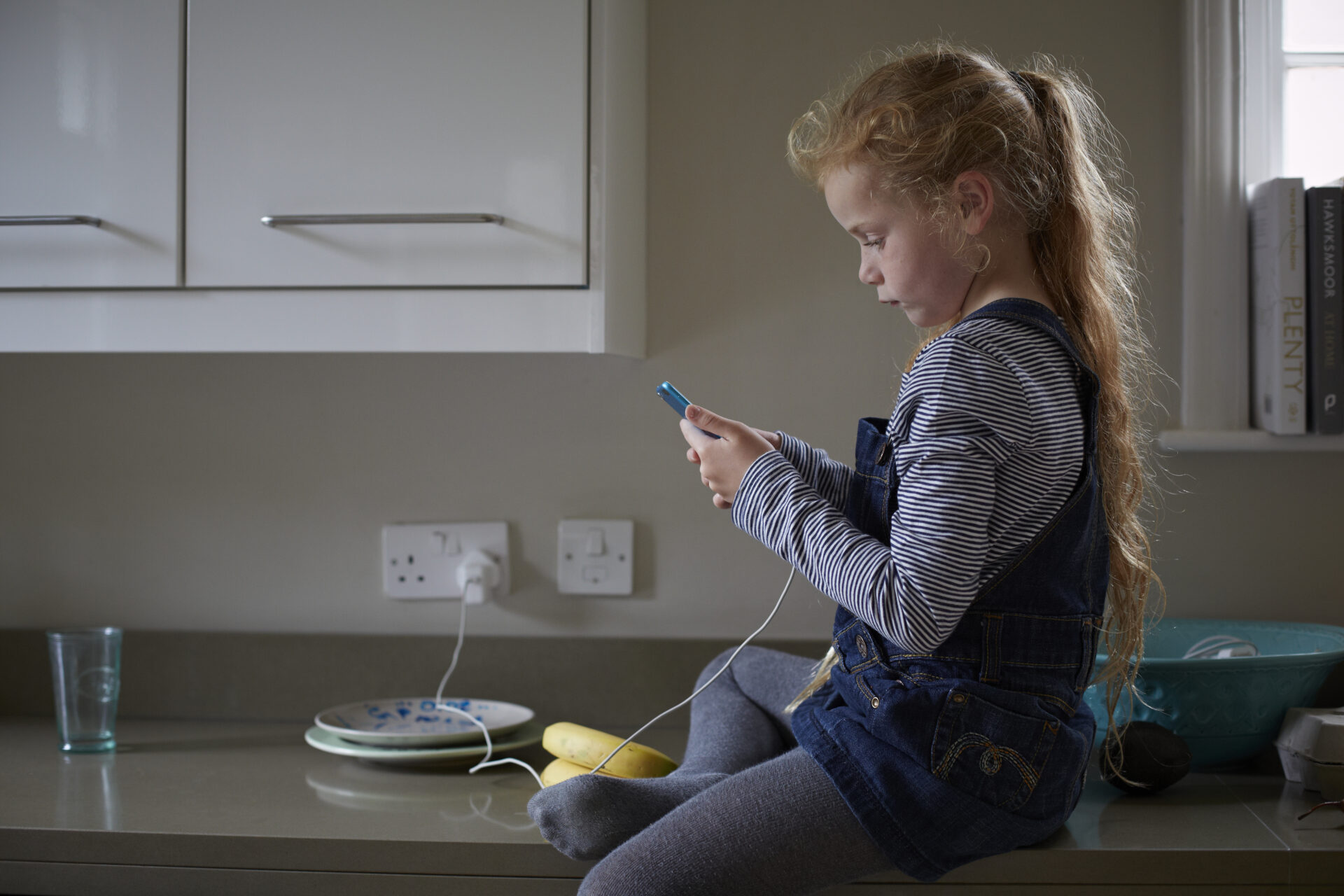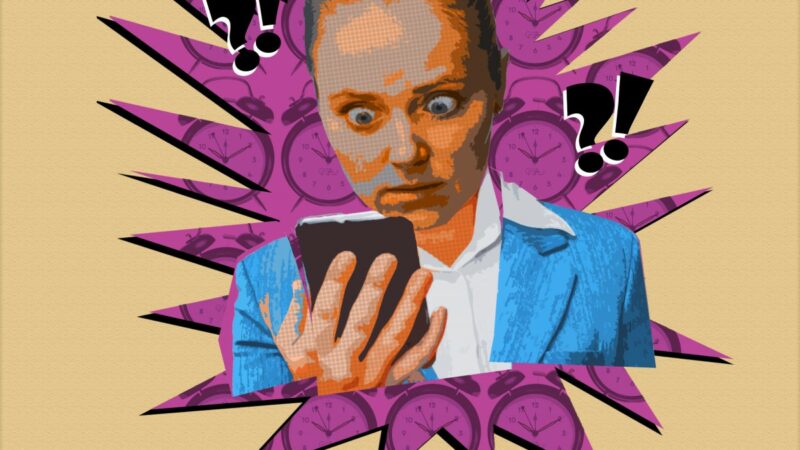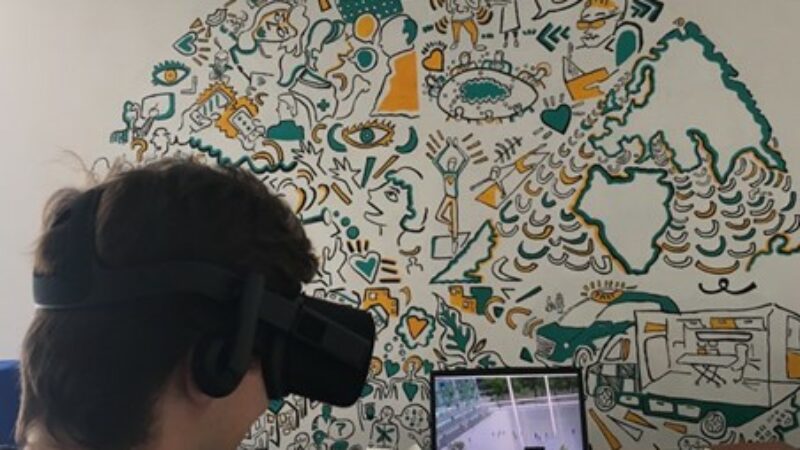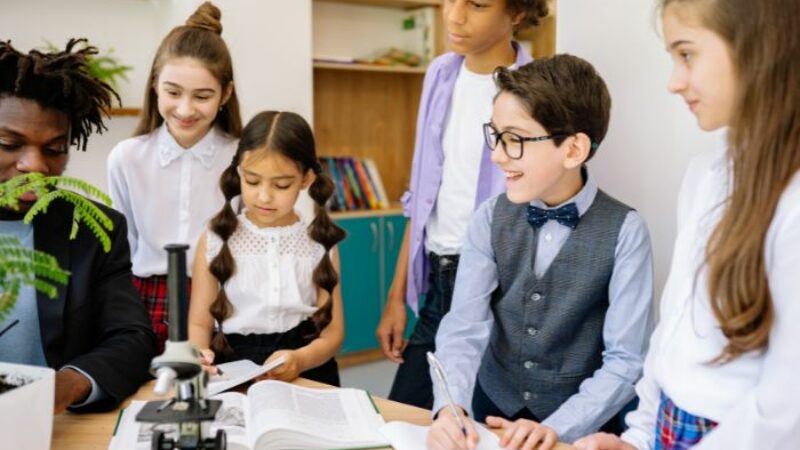Project overview
Screen Time aimed to identify important and unanswered questions about the impact of recreational and social screen time on young people’s mental health.
In this project, ‘screen time’ is defined as watching TV and online videos, playing games, browsing the internet and using social media.
Commissioned by the Department of Health, researchers from the NIHR Mental Health Policy Research Unit at UCL, the Anna Freud Centre, Centre for Mental Health, Kings College London and the McPin Foundation worked with young people aged 11 – 25, valued as experts by experience, in addition to parents, carers and educators.
We wanted to create a public consultation survey to establish a list of the top 10 most important unanswered questions on the topic of screen time and mental health.
Project details
Recent evidence suggests that 95% of teenagers have access to a smartphone, with high levels of regular social media use: 85% report using YouTube, 72% Instagram and 69% Snapchat (1).
Some research suggests that screen time can have a negative impact on health, but it is unclear whether this research can be applied to young people using smartphones today.
Other research has found that social media use may be a risk factor for depression, anxiety, and psychological distress but there are a host of questions that remain unanswered.
References (1): Teens, Social Media & Technology. (2018). Retrieved 30 April 2020, from https://www.pewresearch.org/internet/2018/05/31/teens-social-media-technology-2018/
McPin’s Right People, Right Questions research prioritisation survey was a starting point for the researchers.
Questions that were relevant to screen time and mental health were identified and used as a platform for further discussion.
Next, the researchers held a series of discussion groups with young people, parents, teachers and other experts to generate a new list of questions specific to screen time. These then formed a public consultation prioritisation survey.
McPin promoted involvement in the project by facilitating a Young People Advisory Group (YPAG) who advised on the project, drawing from their experiences of the Right People, Right Questions research.
We also attended steering group meetings with other key stakeholders and two YPAG members.
During these meetings the YPAG provided critical feedback on the questions created by the discussion groups, as well as shaping the language and design of the public consultation survey sent to young people, parents, carers and educators.
Rachel Temple, our Public Involvement in Research Manager at McPin who leads the Young People’s team, and Niamh Elam, a member of the YPAG, recently sat down with Norha from QUAHRC to chat about some of the co-production methods which were vital to this project.
The project team also produced the below infographic charting the course of the project, who was involved and some of the findings.
You can find a pdf of the infographic here, and the findings from the study here.
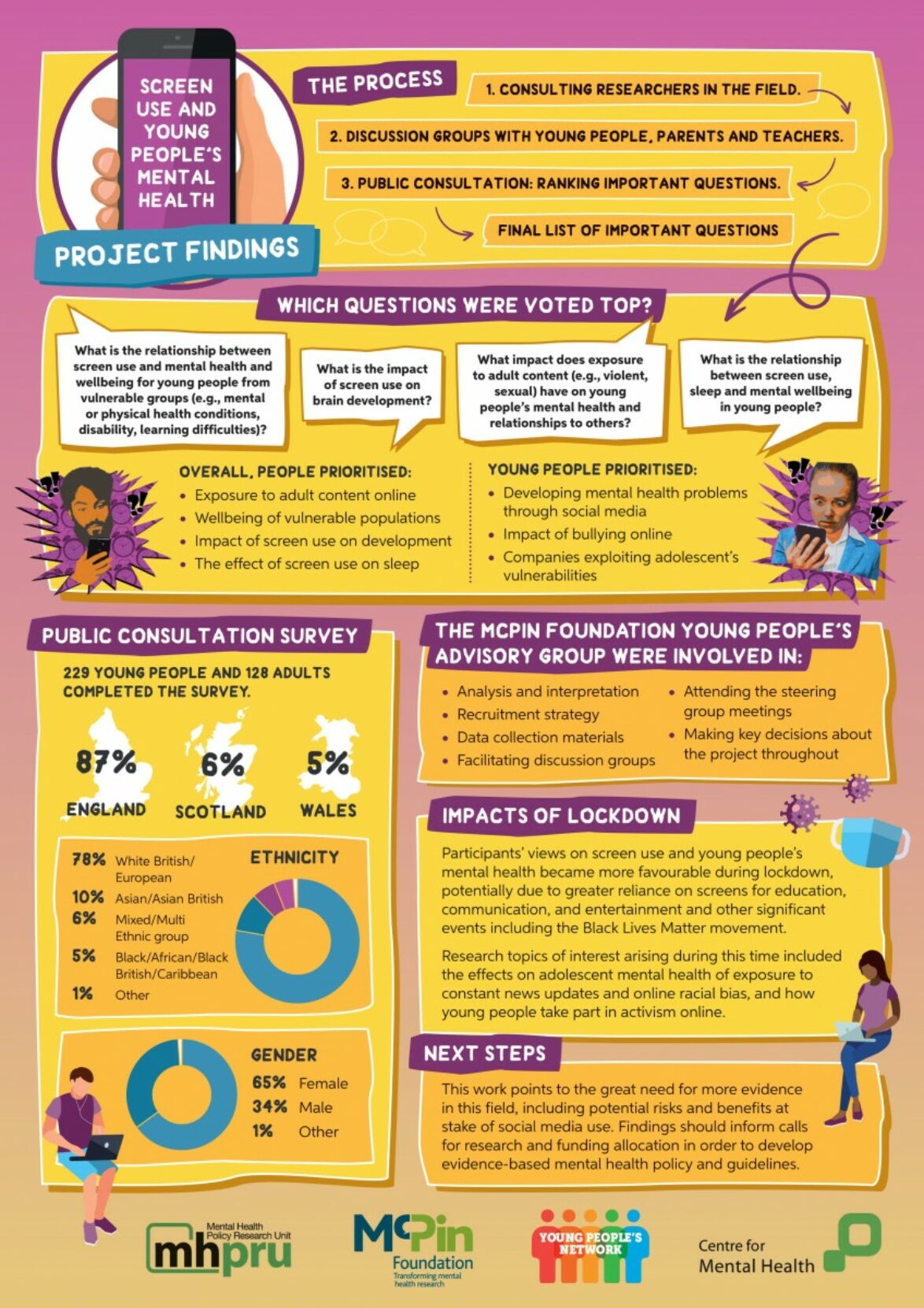
Project resources

Screen use and young people’s mental health project findings

QUAHRC Methods Podcast: Co-producing research with young people with lived experience

Priorities for Future Research about Screen Use and Adolescent Mental Health
Related blogs
Related projects
Work with us
We are always excited to hear from others who want to collaborate on mental health research. From delivering peer research to helping you with public involvement strategies and providing training, get in touch to chat.
